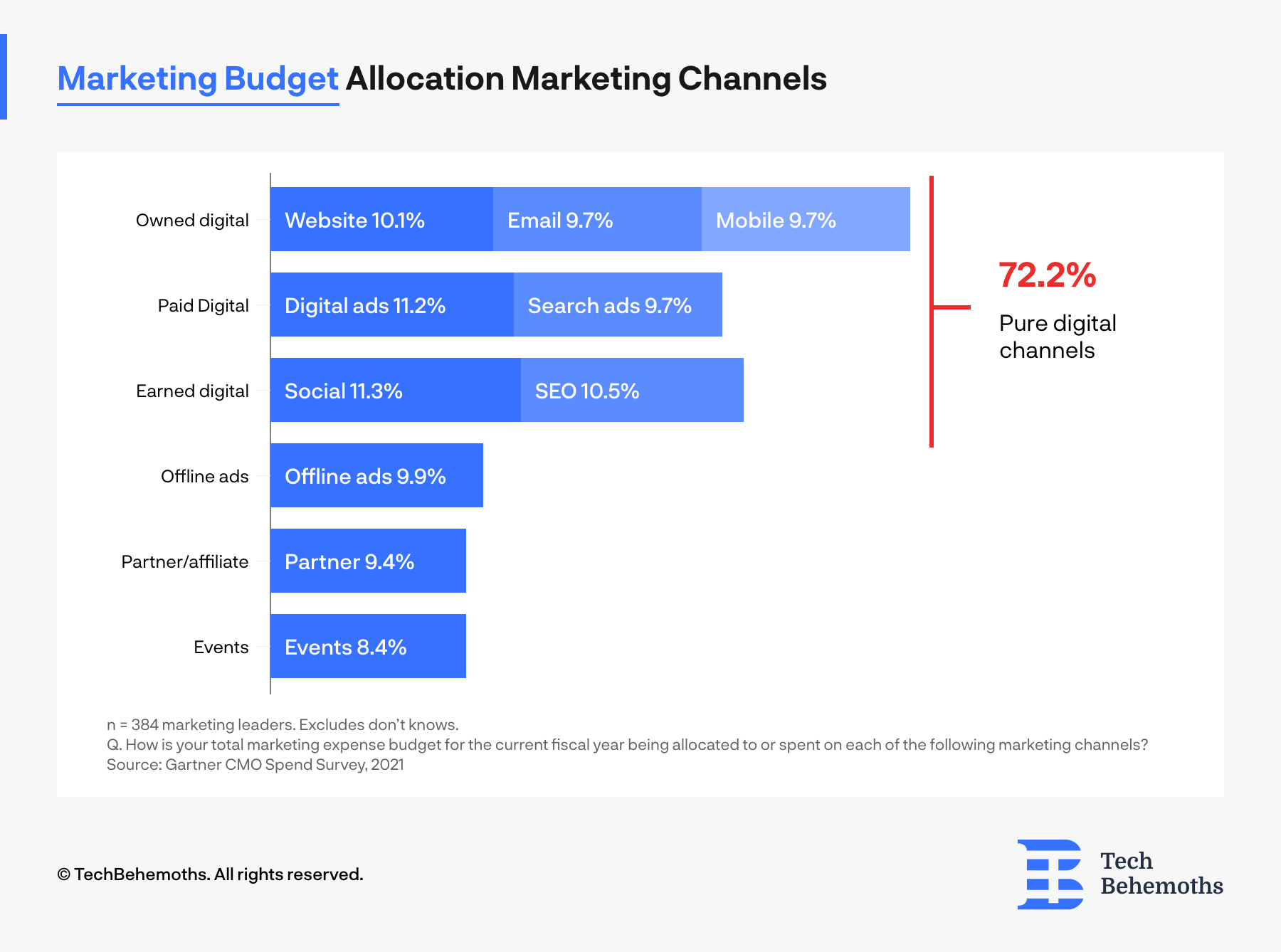Are you a business owner or an entrepreneur considering starting a marketing agency? If so, you’ve probably wondered: Are marketing agencies profitable? It’s a natural question, as you want to ensure that you are making a wise investment in your venture.
Are marketing agencies profitable? Yes, marketing agencies can be profitable ventures, with some consistently achieving high profit margins, strong client retention rates, and positive returns on investment for their services. However, profitability largely depends on various factors, including agency structure, cost management, niche targeting, and the ability to adapt to a rapidly changing digital marketing landscape. But don’t worry, in this blog post, we will delve deeper into these components to help you make an informed decision about whether a marketing agency is the right business for you.
To fully understand the potential profitability of marketing agencies and how they operate, we invite you to continue reading as we explore the revenue streams, cost factors, key profitability metrics, and emerging trends in the ever-evolving world of marketing. Stay with us, and let’s discover what it takes to build and maintain a profitable marketing agency in today’s competitive marketplace.
Overview of Marketing Agency Structures and Types
Before we dive into whether a marketing agency can be profitable or not, let’s first understand what exactly are marketing agencies and how they are structured.
Definition of a Marketing Agency
A marketing agency is an organization that supports businesses in their promotional and sales strategies by developing and managing various marketing campaigns. They offer expertise to enhance a company’s visibility, build their brand, and attract potential customers.
Marketing agencies consist of professionals who are seasoned in different aspects of marketing. They apply their knowledge of market trends and consumer behavior to develop a marketing strategy that targets the right audience and effectively communicates a brand’s unique selling proposition. For more in-depth details about marketing agencies, check out our previous post: What is Digital Marketing? The Ultimate Guide to Boosting Your Online Presence.
Various Business Models
Marketing agencies operate under different business models, which we can categorize into traditional, digital, and hybrid.
Traditional marketing agencies primarily deal with conventional marketing methods, like print advertising, broadcast (television and radio) marketing, direct mail, and telemarketing.
On the other hand, Digital marketing agencies focus more on online marketing strategies. This can encompass search engine optimization (SEO), content marketing, social media management, email marketing, and pay-per-click advertising.
Lastly, Hybrid marketing agencies blend both traditional and digital marketing methods to provide a comprehensive marketing solution. These are popular in this age of multi-channel marketing, as they can help businesses reach their target audience through a variety of platforms.
Revenue Streams for Marketing Agencies
If you’re contemplating whether to start a marketing agency, it’s vital to know where your profits can potentially come from.
Service Fees
Primarily, marketing agencies generate revenue through service fees. These are fees that clients pay for the professional services provided by the agency. They can be structured as retainers, project-based, or performance-based.
Retainers are recurring fees that ensure the agency’s availability on an ongoing basis. Project-based fees are one-time payments for specific projects, while performance-based fees depend on the achievement of certain predefined targets or results.
Product Sales
In addition to offering services, some marketing agencies develop and sell marketing tools and resource templates. These can include content management systems (CMS), CRM software, SEO-tools, social media management tools, digital marketing templates, and more.
Training and Consulting
Another common way marketing agencies earn income is through offering training and consulting services. These can take the form of workshops, webinars, training programs, and educational content on various aspects of marketing. For instance, if you’re planning to delve into the global market, it would be beneficial to look at our post: What is Global Marketing? Discover Its Powerful Impact Worldwide.
The Cost Factors in Running a Marketing Agency
Just like any other business, operating a marketing agency involves costs that can significantly impact profitability.
Overhead Costs
Overhead costs are the business expenses not directly related to producing a product or service, but necessary for the company’s operation. For a marketing agency, these can include office space rent, utilities like internet and electricity, and software subscriptions for productivity and project management tools.
Staffing
Your workforce is probably your most significant expense. This includes salaries for full-time employees, benefits, and payments for freelance contractors. Depending on your business model and clientele, you might need to employ marketing professionals, copywriters, graphic designers, SEO specialists, and more.
Marketing and Sales Costs
Remember, even though you’re in the business of marketing, you’ll also need to market your agency. This calls for a budget towards advertising, promotional activities, networking events, and other expenses to attract and retain clients.
It may seem like a lot to digest, but understanding the financial facets of operating a marketing agency is key to determining your potential profitability. Some factors may seem intimidating, but manageable with proper planning and strategy. It’s all about the balance between revenue streams and cost management. Stay tuned as we dive deeper into this topic in our next posts.

Source: TechBehemoths
Key Profitability Metrics
In order to assess and track a marketing agency’s profitability, three key metrics should be taken into account: profit margins, client retention rates, and the return on investment (ROI) for marketing services.
Profit Margins are calculated by subtracting the agency’s total operating costs from the revenue and dividing that by the total revenue. This figure gives a sense of how much actual profit is generated per dollar earned. Higher profit margins suggest that the agency is adept at managing its overhead costs, while lower margins indicate the opposite.
Client Retention Rates illustrate the agency’s ability to build and maintain client relationships. This figure is of particular importance in the marketing agency business, due to the long-term nature of projects and relationships that are typically formed with clients. Higher retention rates suggest not only better and more consistent income, but also less need for extensive business development efforts and costs.
The Return on Investment (ROI) for Marketing Services is a measure of how much financial benefit clients obtain from the agency’s services compared to what they pay for them. This metric is crucial for demonstrating the value of the agency’s work, as it directly contributes to client satisfaction and retention.

Case Studies of Successful Marketing Agencies
Let’s look at some success stories to provide more concrete examples of profitable marketing agencies. According to a collection of case studies, many thriving marketing agencies express the sentiment that honing in on high-ROI strategies and streamlining services has led to significant profitability. One such agency quotes, “Our profit margins have increased by 20% since streamlining our services and focusing on high-ROI strategies.”
These case studies offer valuable insight into the strategic moves made by successful and profitable marketing agencies, ultimately underscoring the importance of efficiency, focus, and the continual pursuit of strategies that present high ROI.
Challenges and Strategies for Increasing Profitability
While the marketing agency landscape is filled with opportunities, it also comes with its fair share of challenges, such as market saturation, the constantly evolving nature of digital marketing trends, and stiff competition.
Agencies need to be adaptable to changing digital marketing trends, understanding that what worked yesterday might not work today. A keen awareness of changes in social media algorithms, SEO practices, analytics, and audience behavior can influence how an agency operates and services its clients.
Market saturation and competition are inherent challenges in any booming industry. As a survival strategy, agencies need to differentiate themselves, either by offering something that no one else does or offering it in a uniquely effective or appealing way. Highlighting expertise in a specific niche can be a productive way of cutting through the noise.
Strategic partnerships and networking can also play a significant role in increasing profitability. Collaborating with like-minded businesses opens up opportunities for joint ventures, referrals, shared knowledge, and expanding client bases.
Future Trends Impacting Marketing Agency Profitability
Looking towards the future, technological advancements are set to influence the way marketing agencies operate, and subsequently, their profitability. Predictions from “Future Trends in the Marketing Industry,” suggest agencies that leverage AI and machine learning will likely see an increase in campaign effectiveness and client satisfaction, thereby impacting their return on investment positively.
Whether it’s AI for predictive analysis and targeted marketing, chatbots for customer service, or machine learning for automated content creation, embracing these technologies could help agencies stand out from the competition, optimize their campaign effectiveness, and improve their client retention rates, ultimately impacting profitability.
Frequently Asked Questions
What are the key profitability metrics for marketing agencies?
The key profitability metrics for marketing agencies include profit margins, client retention rates, and the return on investment (ROI) for marketing services.
How to increase the profitability of a marketing agency?
To increase profitability, an agency might focus on strategies with high ROI, streamline its services, adapt to the evolving digital marketing trends, differentiate from the competition, and foster strategic partnerships and networks.
What are the challenges faced by marketing agencies in increasing profitability?
The challenges include market saturation, fierce competition, and the need to continually adapt to changing digital marketing trends.
How can new trends in the marketing industry impact agency profitability?
New marketing trends, like AI and machine learning, can improve campaign effectiveness and client satisfaction, which can positively impact an agency’s ROI and profitability.
What role does client retention play in a marketing agency’s profitability?
Client retention rates are crucial because retaining a client is typically less costly than acquiring a new one. High client retention rates indicate less need for business development efforts and promise more consistent income.

